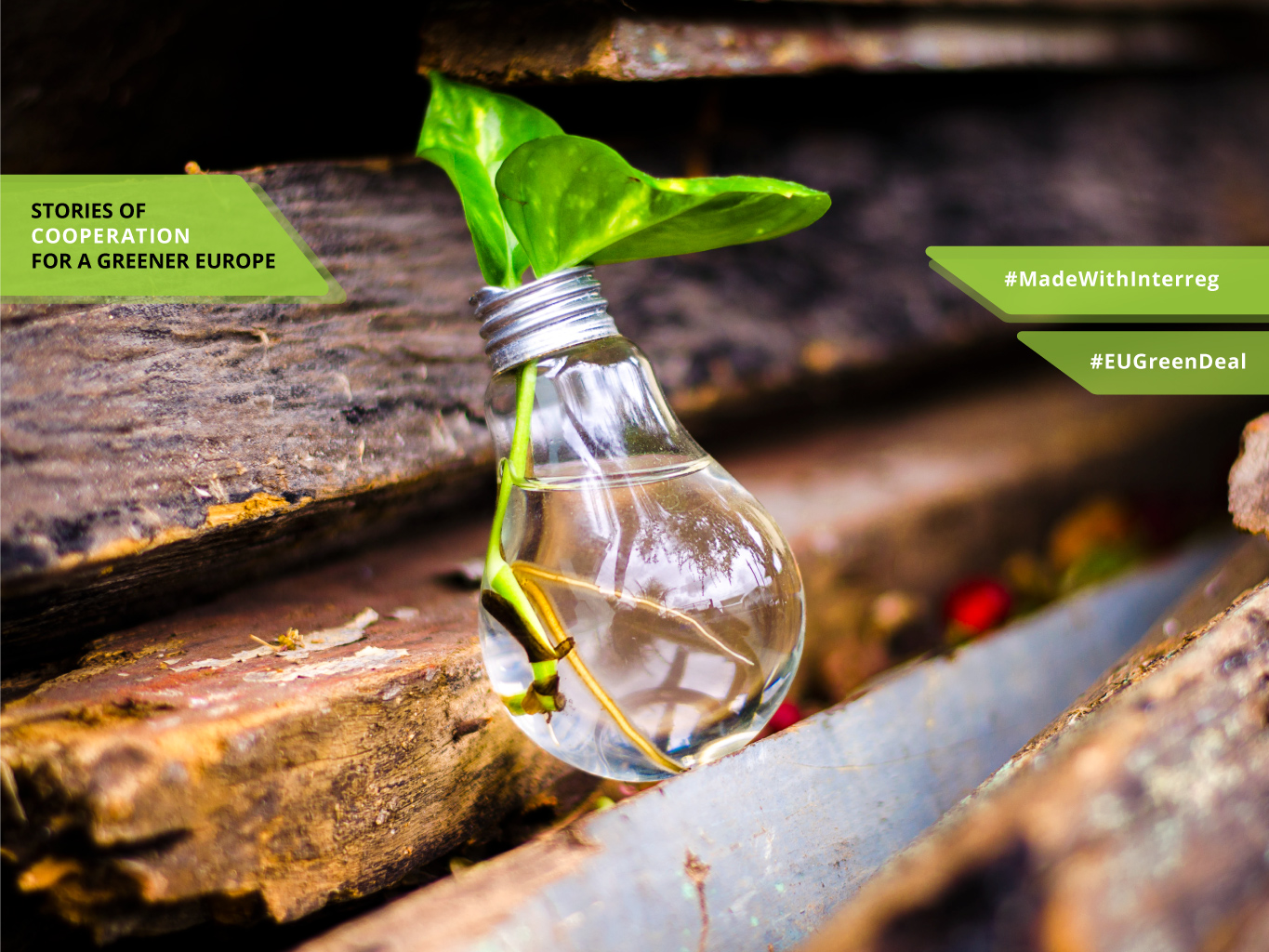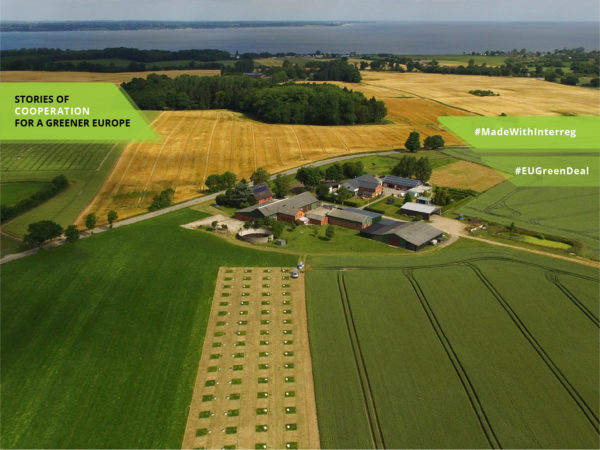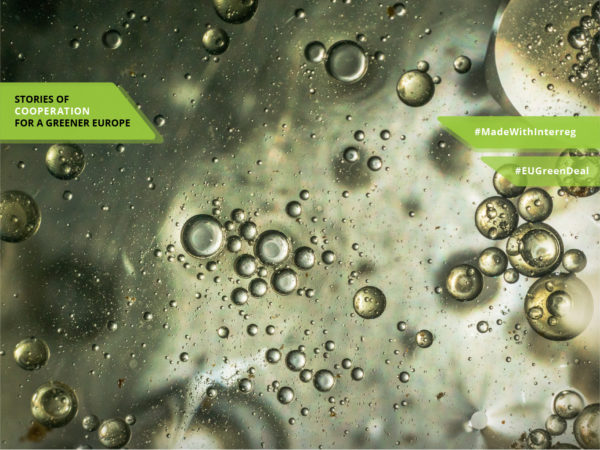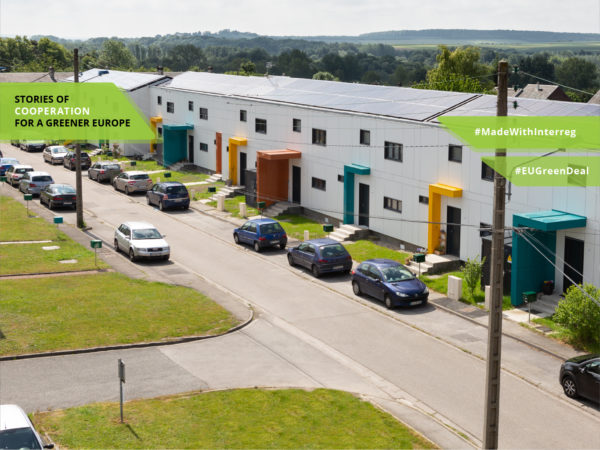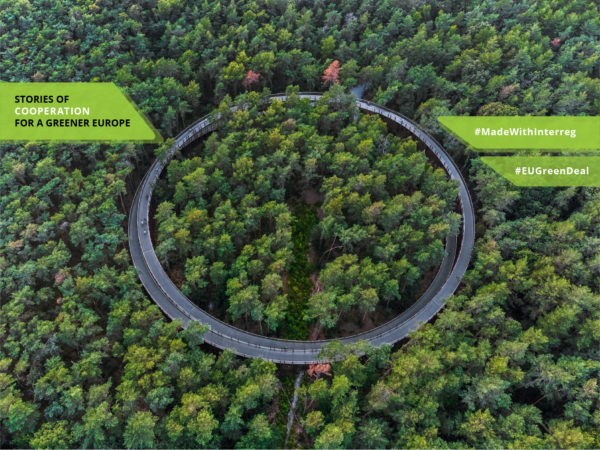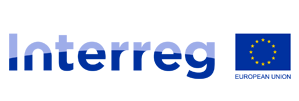Closing the loop through cooperation
In the natural world everything is made of the same components: proteins, sugars, fats, and minerals. These nutrients are rearranged in multiple ways to create the variety and richness we see on Earth. So, nothing goes to waste, and everything is recycled, making the natural world a perfect economy. But how to shift our current modes of consumption closer to the circularity of nature and away from depleting the planet of much-needed resources?
The transition to a more resource-efficient system is essential to the EU’s efforts developing a green economy. The Circular Economy Strategy, adopted by the European Commission, aims at “closing loops”, encouraging sustainable consumption and preventing waste. The resources used should be kept in the EU economy for as long as possible through greater recycling and re-use of renewable resources. Interreg projects in the Danube and Adriatic-Ionian regions contribute to this goal by transnational cooperation promoting circular economy and bioeconomy models.
Your trash is my treasure
In a circular economy, products are designed to be reused and recycled, so as to minimize waste and increase efficiency. The transition towards this model can play a key role in improving our sustainability, helping address the climate crisis we are in. But in terms of EU countries’ advancement towards circular economy, countries of Central and Eastern Europe are moving at a much slower pace than those most advanced. For instance, Romania is only at the beginning of the way, due to its socio-economic conditions, according to a study about its circularity potential performed in the frame of the Interreg Danube Transnational Programme project MOVECO. There is a need for a more systemic approach by public authorities to create conditions for circular economy in general, helping businesses close loops, minimize waste, etc.
To address the challenge, MOVECO project facilitated the preparation of a “Transnational strategy for the transition to the circular economy in the Danube region”. In addition, the consortium developed a roadmap for the strategy’s implementation in Romania and other project countries, and a circular economy toolbox for small and medium-sized enterprises.
“The tools developed by MOVECO help companies assess their level of circularity, and also presents them with the main financing opportunities,“ according to Aida Szilagyi, a sustainability expert and President of National Center for Sustainable Production and Consumption, which is one of the few organizations in the country providing companies with technical support and capacity building on eco-innovation, resource efficiency and cleaner production.
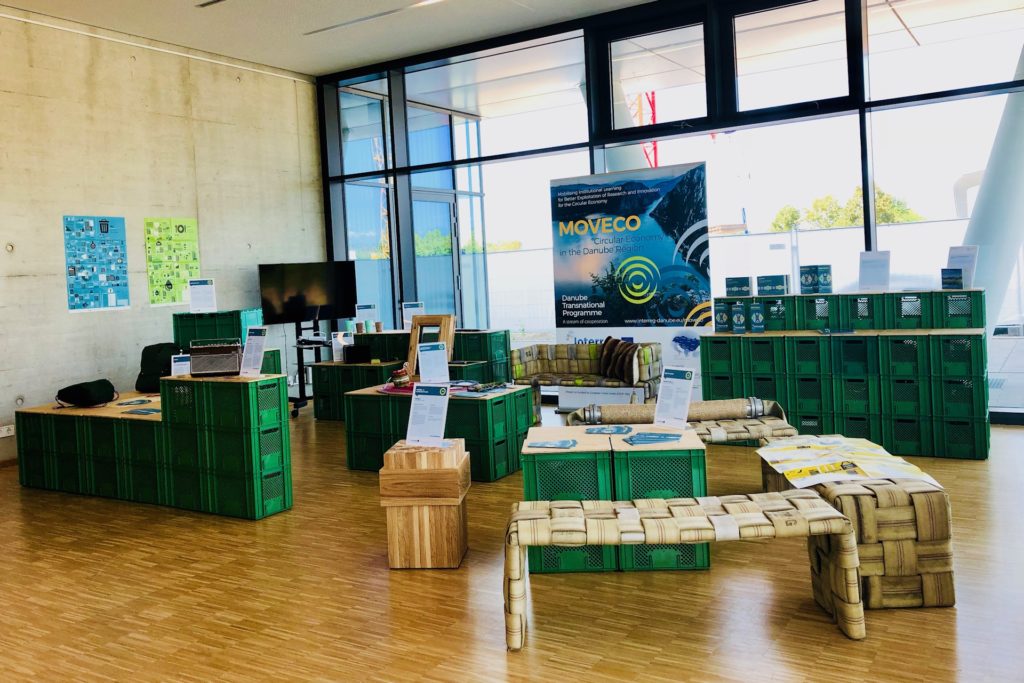
The toolbox is part of the broader “Danube Goes Circular” platform (www.danube-goes-circular.eu) prepared by the MOVECO project for organisations which work in the region to help companies to adop circular economy strategies and practices in their business models. One such organization is Chamber of Commerce and Industry of Bistriţa-Năsăud County, gathering international and local companies operating in the region of Transylvania. Thanks to participating in MOVECO project, its 10 staff members received training in circular economy and innovation. “Especially the Circular Economy toolbox proved to be of great value for our organisation. We translated the full training package and included it into our Training Centre portfolio. Since then, more than 50 people from SMEs have benefited from it”, says Monica Muresan, Secretary General of the Chamber of Commerce and Industry of Bistriţa-Năsăud County.
During MOVECO project, interesting best practice models related to circular economy principles, such as preventing waste, using renewable resources, upcycling used materials, etc., were identified from around the Danube region and made available on the Danube Goes Circular platform. Last, but not least, the platform is an easy way to get in touch with the 16 MOVECO project partner organizations, and continue to be a great sharing platform even two years after the project was concluded. “The implementation of the National Recovery and Resilience Plan in Romania will imply circular economy training at each and every level – for companies, organizations and public administration. And fortunately, we are prepared to provide!”, adds Monica Muresan.
A circular economy is much more than recycling
Bioeconomy tries to mirror the circularity of nature to produce a model where food, fiber and fuel are made only from renewable biological resources, such as crops, plants, animals and micro-organisms from both land and sea.
The Adriatic-Ionian region is identified as the area with a relevant unexploited potential of biomass from agricultural, fisheries and forestry waste and residues. However, bioeconomy is not fully evolved here, showing significant delays in green conversion, technology transfer and cross-sector integration processes. The challenge is to encourage companies and businesses to start investing in a more eco-oriented production, allowing for sustainable development and growth. The Interreg project BIOECO-R.D.I has tackled this issue by designing the BIO-ECOnomy Research-Driven Innovation Strategy for the Adriatic-Ionian region, a roadmap which facilitates the development of a regional innovative system based on bioeconomy. The strategy aims to integrate regional and national plans, as well as to support and guide enterprises, public authorities, and clusters towards an industrial model with a higher level of innovation and international collaboration.
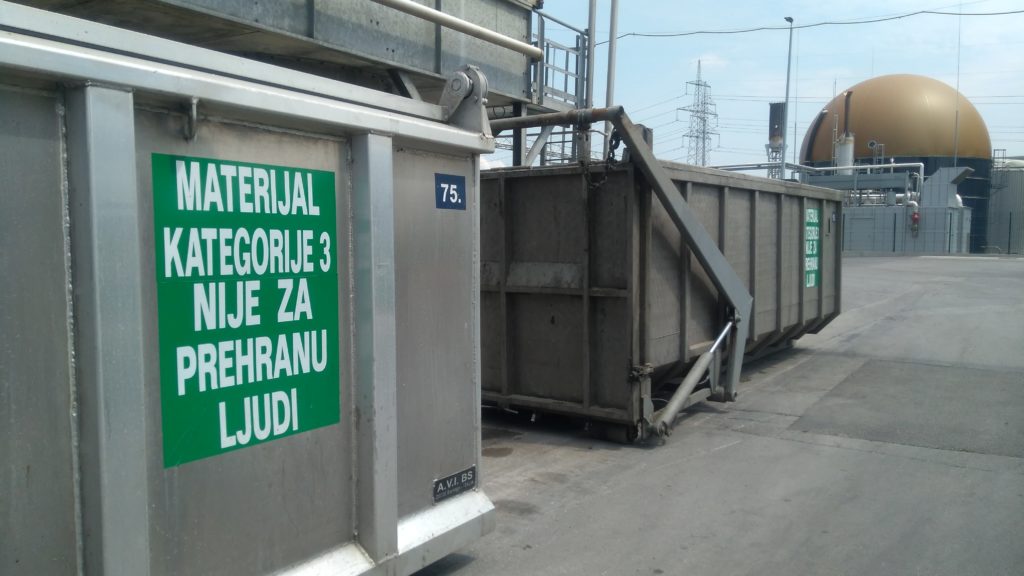
Besides, thanks to the cooperation of the project partners based in Italy, Croatia, Slovenia, Albania, Serbia and Greece, more than a hundred enterprises were involved in capacity building activities aiming to increase knowledge transfer and skills development. A series of peer review and matchmaking events were organised in each country to promote mutual learning and exchange of expertise.
Each project partner identified key sectors for the development of regional bio-economy market, as did the Croatian Laboratory for Aquaculture Biotechnology at the Ruđer Bošković Institute that put focus on the potential of aquaculture. In Croatia, marine and freshwater fishing is important to the country’s economy: in 2017, aquaculture was reported to be 18.6% of the total fish production, providing job to 166 women and 2237 men in 2016, and those figures are definitely expected to grow in the next years. The challenge of applying bioeconomy to aquaculture is to make use of the waste generated by aquatic organisms as well as of the value chain of fisheries to design highly innovative products with zero environmental impact. For instance, fish and shellfish, and in particular their by-products, are increasingly being used in innovative applications and new products in the pharmaceutical industry.
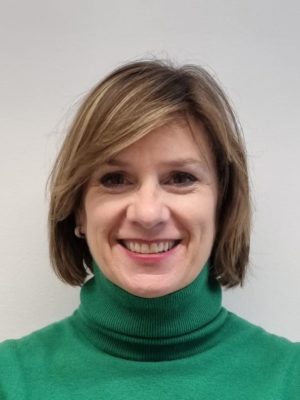
“Management and processing of aquaculture and fisheries by-products and waste, due to growing production volumes, is an environmental, social and political priority not only in Croatia, but also in all countries that exploit aquatic resources.”, says Natalija Topić Popović, researcher at the Laboratory for Aquaculture Biotechnology at the Ruđer Bošković Institute in Zagreb. “Through BIOECO-R.D.I. we aimed at identifying and acquiring bioeconomy knowledge necessary for more substantial use of the current fishery, aquaculture and fish and shellfish industry waste. A mutual learning process with research, enterprises and policymakers, was activated based on the exchange of knowledge and competences related to bio-based products deriving from the available aquatic biomass”, stresses Natalija. As a partner of BIOECO R.D.I., the Institute organised a series of activities from symposiums with academia, to seminars for policymakers and workshops for enterprises, up to technical demonstration visits that increased the level of knowledge and improved collaboration among the relevant actors. “The activities were found beneficial for all parties addressed, and most target groups encouraged the initiative.”, says Natalija.
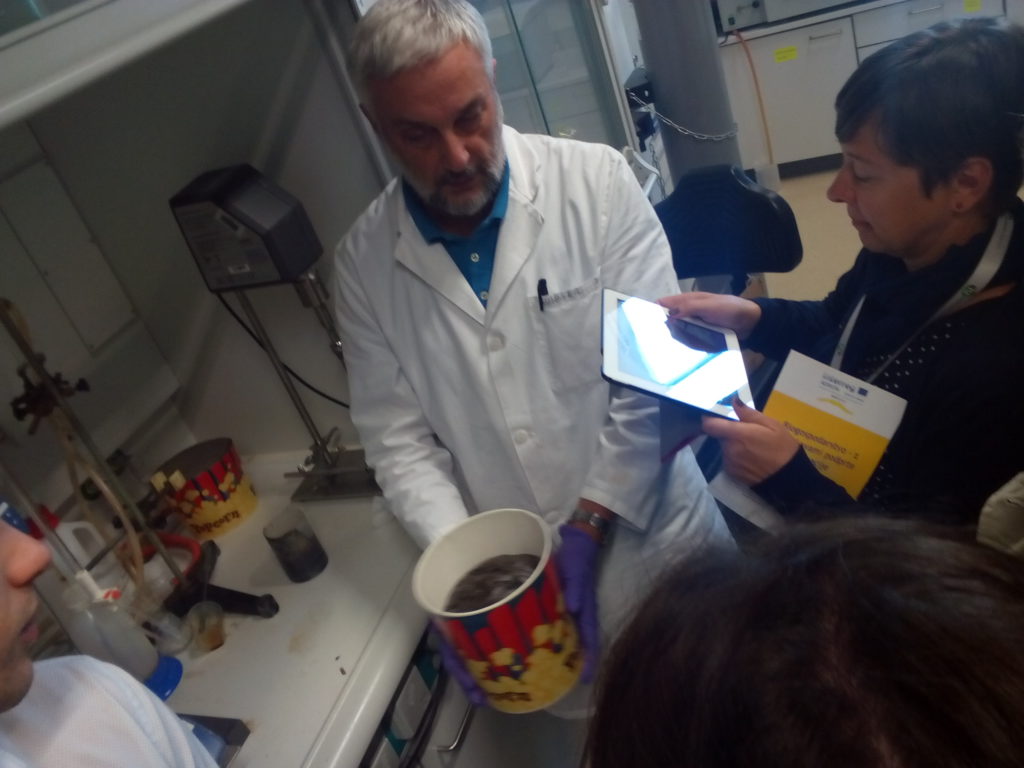
The organisations involved in the partnership were able to implement concrete actions and connect actors with different levels of R&D and bioeconomy business maturity, to find potential synergies for future institutional and commercial partnerships, as well as new consortia for research and project applications. “We were fortunate to find open doors and a keen audience within the Ministry of Agriculture, Directorate of Fisheries, our relevant policymaker. They authorized several of our actions, and eagerly discussed further steps that need to be made. However, legislative and administrative barriers are a constant issue, relating to a number of regulations and legal acts, both national and EU, concerning operations with animal by-products, but none dedicated solely to aquatic animals. To that end, cooperation and support of all involved parties, particularly national policymakers are of utmost importance”, the Croatian researcher concludes.
To increase the awareness on bioeconomy, networks of researchers, SMEs and public institutions are crucial
Disparities across the Adriatic-Ionian region when it comes to innovation and, more importantly knowledge and awareness on the principles of circular economy, are well known to all project partners. “People have an increased knowledge and sensitivity for the green transition, however there is still a lack of awareness on some main concepts and processes linked to bioeconomy, this somehow jeopardize the effectiveness of their commitment in environmental conscious behaviors, also among entrepreneurs and policy makers.”, says Diego Mattioli project manager of BIOECO-R.D.I. To this end, the initiatives taken up by the project were helpful to fill those gaps.
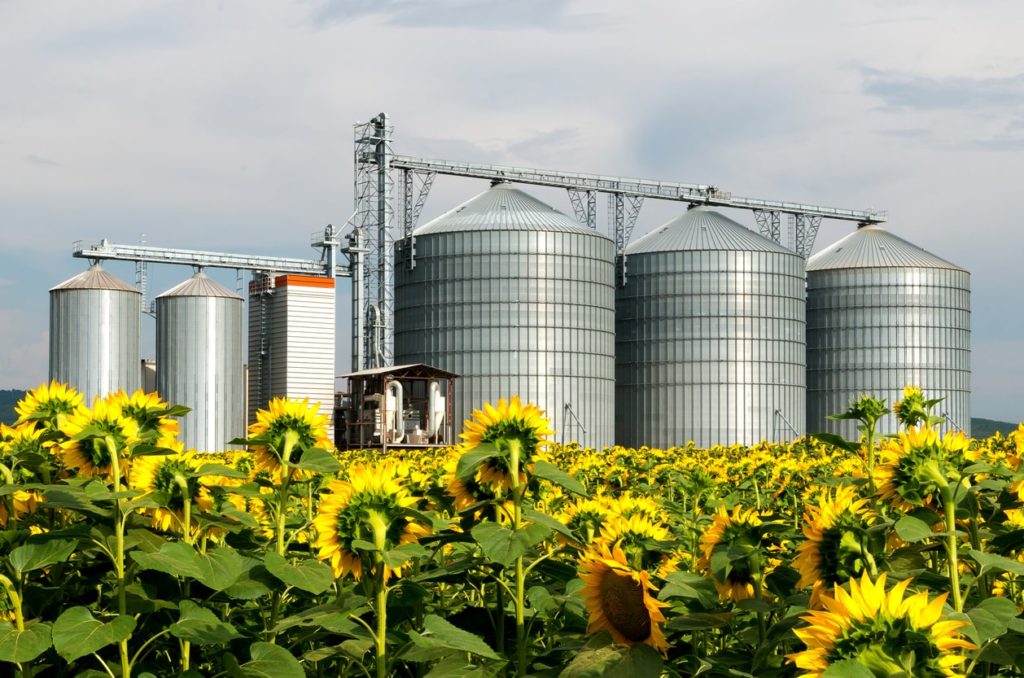
Through various networking and peer learning activities, partners exchanged ideas and perspectives on bioeconomy policies, potential incentives and public support to the bio-based industry, and looked for opportunities to better link research organisations with industry. To keep a record of all those experiences and encourage a continuous exchange of information, the project designed a web-platform targeted to the interested organisations working in the sector of bioeconomy. The digital tool is devoted to networking and mutual learning, promoting knowledge sharing and collaboration, with the ambition to converge knowledge with opportunities for business. According to Diego, “The web-platform designed by the project is definitely a step forward towards the creation of value chains and new opportunities for access to finance, such as helping bio-based industries find financial incentives and support regions and interested parties in maximising the potential of bioeconomy”.
The authors
Michal Pavlik works as a Communication Manager at the Interreg Danube Programme.
Giulia Frattini works as a Communication Manager at the Interreg ADRION Programme.
Emin Yigit Koyuncuoglu works as an IVY Reporter at the Interreg ADRION Programme
This article is part of a series on how transnational cooperation contributes to the EU Green Deal. Click here to see all stories.
